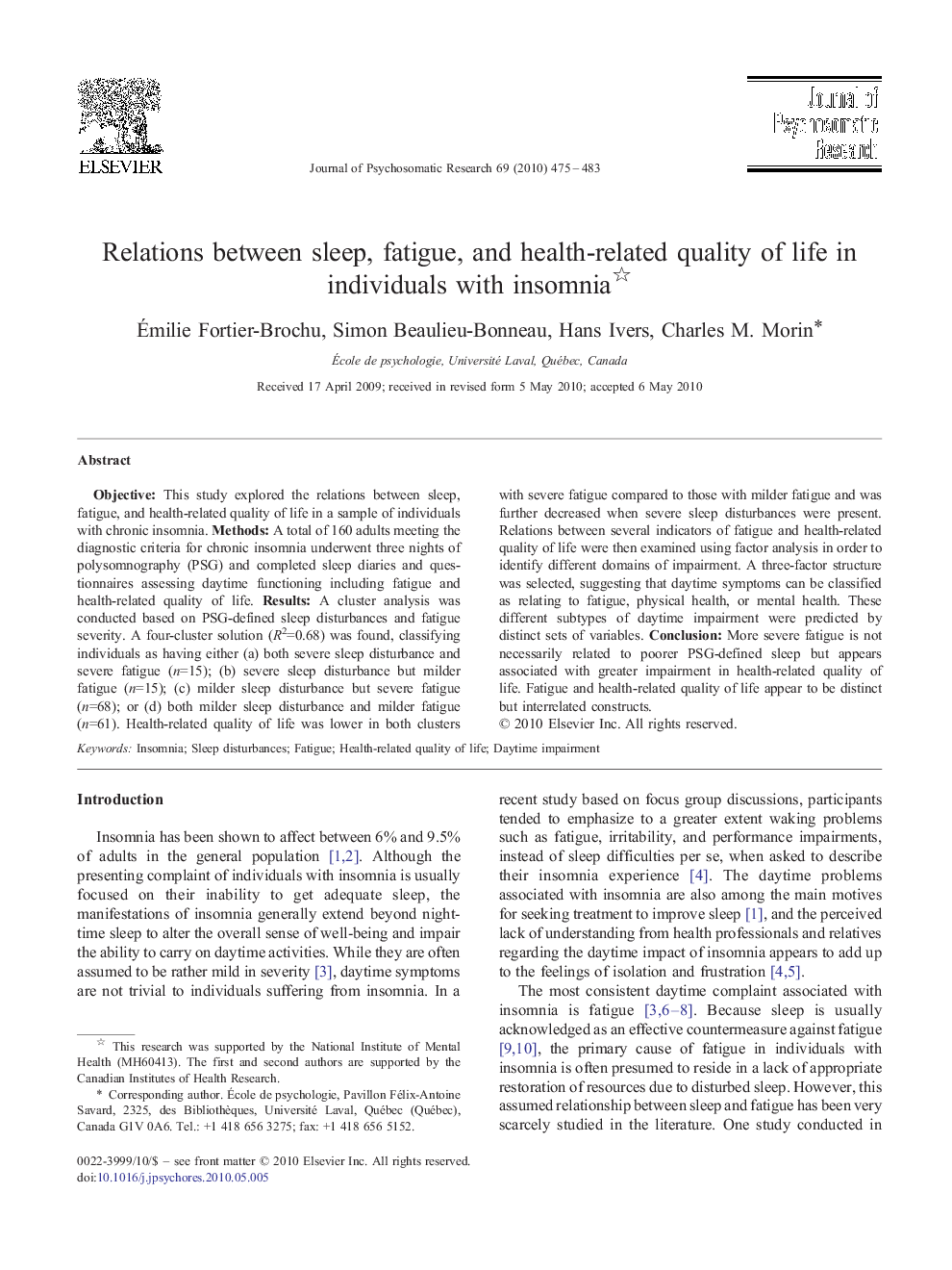| Article ID | Journal | Published Year | Pages | File Type |
|---|---|---|---|---|
| 949826 | Journal of Psychosomatic Research | 2010 | 9 Pages |
ObjectiveThis study explored the relations between sleep, fatigue, and health-related quality of life in a sample of individuals with chronic insomnia.MethodsA total of 160 adults meeting the diagnostic criteria for chronic insomnia underwent three nights of polysomnography (PSG) and completed sleep diaries and questionnaires assessing daytime functioning including fatigue and health-related quality of life.ResultsA cluster analysis was conducted based on PSG-defined sleep disturbances and fatigue severity. A four-cluster solution (R2=0.68) was found, classifying individuals as having either (a) both severe sleep disturbance and severe fatigue (n=15); (b) severe sleep disturbance but milder fatigue (n=15); (c) milder sleep disturbance but severe fatigue (n=68); or (d) both milder sleep disturbance and milder fatigue (n=61). Health-related quality of life was lower in both clusters with severe fatigue compared to those with milder fatigue and was further decreased when severe sleep disturbances were present. Relations between several indicators of fatigue and health-related quality of life were then examined using factor analysis in order to identify different domains of impairment. A three-factor structure was selected, suggesting that daytime symptoms can be classified as relating to fatigue, physical health, or mental health. These different subtypes of daytime impairment were predicted by distinct sets of variables.ConclusionMore severe fatigue is not necessarily related to poorer PSG-defined sleep but appears associated with greater impairment in health-related quality of life. Fatigue and health-related quality of life appear to be distinct but interrelated constructs.
